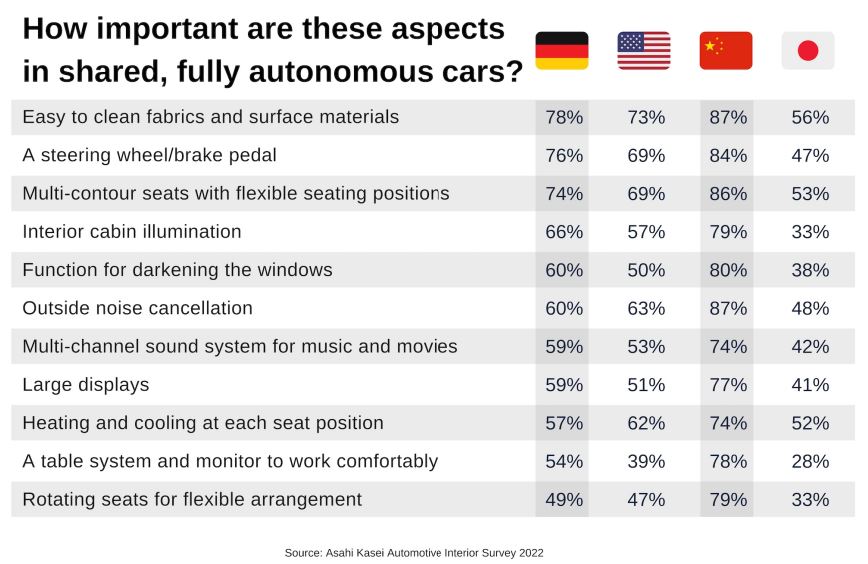According to a recent global survey conducted by Japanese tech company Asahi Kasei, acceptance and usage of autonomous cars differ widely across the world’s four largest automotive markets: Germany, China, the USA, and Japan. The study was conducted in partnership with Skopos, a market research institute based in Cologne.
The survey showed that despite an overall decline in brand loyalty, owning a car remains a preference for the majority in all four regions. This was especially evident in China and Japan where 79% and 62% of respondents, respectively, were open to buying a new car. Comparatively, half of the respondents in Germany and the U.S. shared the same sentiment.
However, a sizable shift in brand preference was observed, especially in China where 82% of participants stated they would consider a car from another manufacturer, nearly doubling from 41% in 2020. This change underscores the growing competitiveness in China’s automobile market due to an expanding range of domestic brands.
Addressing this trend, Michael Franchy, Director of North American Mobility for Asahi Kasei America, emphasized the need for OEMs to partner with suppliers with expertise in interior, exterior, and electrification. This will help streamline the development process and expedite the introduction of new features.
In terms of electric cars, range and charging time were identified as critical factors influencing purchase decisions across all regions. The study found that more than half (58%) of Chinese respondents were open to buying a purely battery-powered electric vehicle, while Germany, USA, and Japan showed less enthusiasm at 29%, 21%, and 18%, respectively.
The study also revealed a changing perception of sustainability. A “sustainable vehicle” is now associated not only with drivetrain technology but also with CO2 footprint in production, recyclability of materials, and decarbonization efforts of manufacturers and suppliers.
The survey highlighted significant regional disparities in the acceptance of fully autonomous cars. More than half of German and U.S. respondents rejected the idea, whereas the Asian market demonstrated more openness, with only 10% of Chinese and 22% of Japanese respondents opposing it.
Asahi Kasei also observed that the envisaged usage scenarios for fully autonomous cars varied among the surveyed markets. Popular options included displaying tourist information and reading or relaxing, while the Chinese market displayed an affinity for watching movies and series.

Interior preferences for autonomous vehicles were also noted, including easy-to-clean textiles and surfaces, adjustable seats, individualized interior lighting, and window darkening functionality. Interestingly, the option of having a steering wheel and brake pedal for optional manual control was favored by many respondents, particularly in Germany, the USA, and China.
Heiko Rother, General Manager Business Development Automotive at Asahi Kasei Europe, underscored the importance of focusing on customer preferences and enhancing the driving experience while developing new materials and technologies.



No comments yet.